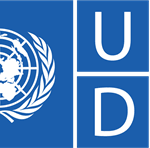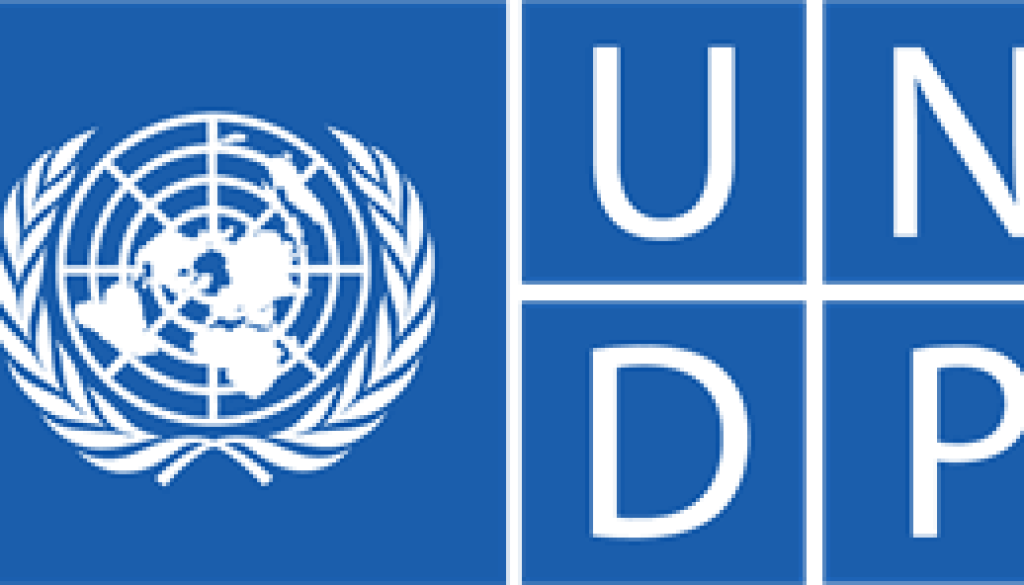Chief Technical Specialist Vacancy-Job Ref: GJTRUNDP/1111/202437

UNDP
Chief Technical Specialist Vacancy-Job Ref: GJTRUNDP/1111/202437
Istanbul (Turkey)
JOB DESCRIPTION
Diversity, Equity and Inclusion are core principles at UNDP: we value diversity as an expression of the multiplicity of nations and cultures where we operate, we foster inclusion as a way of ensuring all personnel are empowered to contribute to our mission, and we ensure equity and fairness in all our actions. Taking a ‘leave no one behind’ approach to our diversity efforts means increasing representation of underserved populations. People who identify as belonging to marginalized or excluded populations are strongly encouraged to apply. Learn more about working at UNDP including our values and inspiring stories.
UNDP does not tolerate sexual exploitation and abuse, any kind of harassment, including sexual harassment, and discrimination. All selected candidates will, therefore, undergo rigorous reference and background checks.
UNDP is the UN’s global development network and assists countries to build and share solutions to the challenges of globalization and human development. UNDP’s support to countries on climate change and disaster resilience is shaped by three important global agreements: the Paris Agreement on Climate Change, the Sendai Framework on Disaster Risk Reduction, and the 2030 Agenda for Sustainable Development. UNDP works with countries to help them reduce greenhouse gases and advance a long-term goal of zero-carbon development. At the same time, we work together with partners to adapt to the impacts of climate change, enhance access to clean energy, reduce the risk of disasters and, where needed, support resilient disaster recovery. Taken all together, these efforts are the path towards sustainable development that is risk-informed, zero-carbon and resilient.
The Central Asia region has a long history of disaster impacts, which on average cost $10 billion in estimated economic losses and affect more than 3 million people annually. The region has a complex risk profile, with growing impacts of climate change, high environmental degradation, and pollution, conflicts, as well as new and emerging security risks and threats. The population of the region, especially in urban areas, is highly exposed to the impacts of these hazards, and urbanization is outpacing risk reduction and adaptation efforts of governments in the region.
The project “Enhancing Urban Resilience to Disaster Risk and Climate Change in Central Asia” is funded by the Government of Japan and expected to be implemented by UNDP in Kazakhstan, Kyrgyzstan, Tajikistan, Turkmenistan and Uzbekistan. The overall objective of the project is to support all five Central Asian countries in building climate resilience, focusing on urban areas. The project will specifically focus on enhancing regional cooperation and partnership through the existing coordination platforms, while introducing innovative approaches in urban planning based on practical experiences from other countries, including Japan.
New approaches to integrated climate and disaster risk assessment will transform urban planning from resilience lenses, while considering future intensity and magnitude of natural hazards due to the changing climate. Knowledge base and capacity building efforts will be institutionalized in the region to ensure sustainability of interventions beyond the project cycle.
The project will promote a people-centred, gender sensitive and climate risk-informed holistic approach to break siloes in urban planning efforts with a focus on the following outputs and their corresponding activities: (i) Output 1: Regional collaborative mechanism for urban resilience established; (ii) Output 2: Transformative risk governance for urban resilience defined; and (iii) Output 3: Innovative adaptation and risk reduction measures piloted in urban settings.
Duties and Responsibilities
The Chief Technical Specialist (CTS) will be mostly home-based and will provide high-level technical guidance, strategic direction, and oversight for the implementation of the project. The CTA will ensure the achievement of the project’s objective and outputs through expert advice, capacity building, and the development and application of innovative approaches in urban planning and resilience building. Additionally, the CTA will undertake missions to the programme countries to ensure effective implementation and coordination, as necessary.
More specifically:
Provide Technical guidance, strategic direction and innovation:
Provide expert advice on all technical and policy aspects of the project, including its three key outputs: the establishment of a regional collaborative mechanism for urban resilience, the definition of transformative risk governance, and the piloting of innovative adaptation and risk reduction measures;
Ensure that project activities are aligned with international best practices, regional needs, and the overarching goals of the Paris Agreement, the Sendai Framework, and the 2030 Agenda for Sustainable Development;
Liaise with the Project Manager to ensure that the project’s overall direction and integrity are maintained, as outlined in the Project Document;
Contribute to the preparation of annual progress reports and other technical documents, ensuring they accurately reflect the project’s achievements, challenges, and strategies;
Provide technical inputs and recommendations for the implementation of project activities in close consultation with key partners, including UNDP Country Offices, UNDP Istanbul Regional Hub, and national governments;
Ensure a cohesive approach to the project by coordinating and integrating the various technical components and outputs. This includes aligning activities across different project areas to achieve synergies and avoid duplication;
Provide direction and guidance to project teams and responsible parties, working closely with the project manager and the team to address technical challenges and optimize project performance;
Develop and refine strategies for integrated climate and disaster risk assessment and urban planning. Ensure these strategies are designed to be risk-informed, zero-carbon, and resilient, addressing both current and future climate risks;
Introduce and integrate innovative methodologies and approaches for urban resilience, leveraging international experiences and practices, including those from Japan, to enhance the project’s effectiveness and impact;
Continuously introduce and adapt innovative approaches and methodologies for urban resilience against climate risks. Utilize lessons learned and best practices from global experiences to inform and improve project strategies and pilot solutions;
Promote the adoption of new technologies and approaches that enhance urban planning and disaster risk management, ensuring they are practical and applicable within the context of Central Asia.
Capacity building and knowledge sharing:
Support and guide the design and implementation of capacity-building initiatives for local stakeholders, including government officials, urban planners, and community representatives. Focus on enhancing their skills and knowledge in climate resilience, disaster risk reduction, and innovative urban planning;
Facilitate the exchange of knowledge and best practices between project countries and with international partners, in coordination with project manager and the UNDP’s Istanbul Regional Hub.
Regional collaboration, coordination and implementation
Support the establishment and strengthening of regional collaborative mechanisms for urban resilience. Ensure effective communication and coordination among the five participating countries;
In collaboration with UNDP Istanbul Regional Hub and the project manager, work with regional stakeholders to enhance existing coordination platforms and promote collaborative approaches to addressing climate risks and urban resilience;
In coordination with project manager, if needed, undertake regular field missions to each of the programme countries to oversee the implementation of project activities, provide on-site technical support, and engage with local stakeholders.
The incumbent performs other duties within their functional profile as deemed necessary for the efficient functioning of the Office and the Organization.
Institutional Arrangement
Project Management Unit (PMU) will be established and hosted by UNDP Country Office in Kazakhstan and co-located in Almaty to support project planning and implementation of activities on daily basis. PMU will be led by a full time Regional Project Manager (RPM). The Chief Technical Specialist (CTS) will closely work with the PMU and UNDP Istanbul Regional Hub, support the full time RPM, and report to the IRH Regional Pogramme Chief, with matrix reporting to the Climate and Disaster Resilience Team Leader in Istanbul.
Competencies
Core Competencies:
Achieve Results: LEVEL 3: Set and align challenging, achievable objectives for multiple projects, have lasting impact
Think Innovatively: LEVEL 3: Proactively mitigate potential risks, develop new ideas to solve complex problems
Learn Continuously: LEVEL 3: Create and act on opportunities to expand horizons, diversify experiences
Adapt with Agility: LEVEL 3: Proactively initiate and champion change, manage multiple competing demands
Act with Determination: LEVEL 3: Think beyond immediate task/barriers and take action to achieve greater results
Engage and Partner: LEVEL 3: Political savvy, navigate complex landscape, champion inter-agency collaboration
Enable Diversity and Inclusion: LEVEL 3: Appreciate benefits of diverse workforce and champion inclusivity
Cross-Functional & Technical Competencies:
Strategic Thinking:
Develop effective strategies and prioritized plans in line with UNDP’s mission and objectives, based on the systemic analysis of challenges, opportunities and potential risks; link the general vision to reality on the ground to create tangible targeted solutions; learn from a variety of sources to anticipate and effectively respond to both current and future trends; demonstrate foresight.
System Thinking:
Ability to use objective problem analysis and judgement to understand how interrelated elements coexist within an overall process or system, and to consider how altering one element can impact on other parts of the system
Collective Intelligence Design:
Ability to bring together diverse groups of people, data, information, ideas, and technology to solve problems and design solutions or services.
Knowledge and understanding of Collective Intelligence Design principles, methodology and practices
Climate:
Climate Change Adaptation: Cross-sectoral climate resilient livelihoods
Climate:
Climate Change Adaptation: Urban Resilience
Disaster Risk Reduction and Recovery:
Urban Resilience
Disaster Risk Reduction and Recovery:
Recovery Disaster Risk Reduction: Urban and Local Level Disaster Risk Management
Required Skills and Experience
Education:
Master´s degree in Urban and Regional Planning, Disaster Resilience, Governance, Environmental Planning, Environmental Science, Engineering, Climatology or related field is required.
Bachelor’s degree in the above mentioned fields in combination with additional two years of qualifying experience will be given due consideration in lieu of the master`s degree
Experience:
Minimum 5 years (with Master’s degree) or 7 years (with Bachelor’s degree) of proven track record experience in project management, especially in the area of urban resilience, disaster risk reduction, climate change, urban/ environmental planning, land use and physical planning.
Required Skills:
Working experiences on urban development, disaster risk reduction and climate change issues, particularly on mainstreaming efforts in the region of Europe and Central Asia is an asset;
Experience with environmental laws and regulations, and development and land use/physical planning processes and regulations at the national, sub-national and local levels is an asset;
Strong communication skills, including demonstrated written and presentation skills and the capacity to relate to both internal and external constituencies of the project; and
Demonstrated ability to work well in multidisciplinary teams and manage complex tasks.
Desired Skills:
Research in environment, natural resources management, climate change adaptation, urban planning, urban resilience or other relevant fields is an asset;
Experience managing projects of UN or other international organizations is an asset;
Experience in technical oversight in the areas of climate change adaptation, resilience, disaster risk management, urban studies such as urban resilience/planning, or other relevant fields is desirable.
Languages:
Fluency in English is required.
Knowledge of Russian will be considered as an asset
Please click on the button below to Apply.

